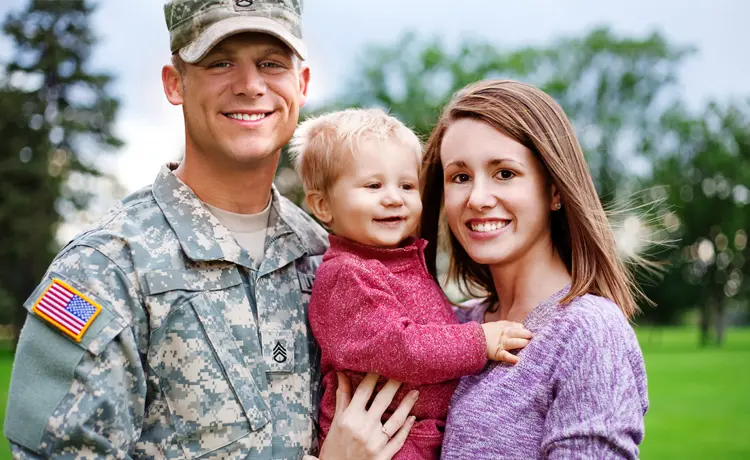Relationships can be tough under the best of circumstances, and deployment can be one of the most challenging periods for military couples. When it’s finally time for a Service member to come home, partners shouldn’t be surprised if reality doesn’t quite measure up to the rom-com-inspired reunion they’ve been dreaming about. Everyone will need time to adjust.
November marks Military Family month, a time to show appreciation for the daily sacrifices that military families make as they support their Service members and our nation. Share these reunion tips with your military community. Knowing what some of the challenges are ahead of time can help couples prepare and meet them head on.
How Can Couples Reduce the Stress of Reunion? Couples need to communicate ahead of time and plan homecoming together. Do they want to stay in for a quiet night or go out and celebrate? Do they want to invite family and friends or keep it low-key because reunion can be exhausting? Whatever they choose, it’s important to make it memorable. Once they settle in at home, couples need to:QuickFact: Deployment is not restricted to combat. Service members are presently stationed in more than 170 countries around the world. And more than 2 million Service members have been deployed since 9/11, according to RAND.
- Talk to each other. Speak up (gently) if they’re feeling awkward or unsure.
- Give each other a little space. They may be rusty at cooperation, compromise and negotiation. They need time to readjust to sharing.
- Expect readjustment from their children as well. Children might be afraid of the returning parent, resentful or indifferent, depending on their ages.
- Expect your partner to be different – maybe more confident and independent.
- Your partner might want to tell you absolutely everything that happened during the deployment. You may have heard it all before but listen again! He or she needs to tell you face-to-face.
- Don’t get into a contest about who had it worse. All you need to say is, “I’m proud of you,” and mean it. Partners need some kind of recognition for what they have done.
- Expect your partner to be a little jealous of your travels, so go easy on the descriptions.
- Expect that sex may be awkward at first. Talk it over. Couples may need to reestablish intimacy and closeness before reestablishing a sexual relationship.
- Tune in to your partner (patience, emotional and physical foreplay, courtship, talking, touching, cuddling, etc.).
- Reassure and respect your partner (determine each other’s pace).
- Communicate your expectations and desires (you want to please each other; say how).
- Do something unexpected (leave a flower or a note on your partner’s pillow).
- Listen carefully and respond when your partner tells you something.
- Talk – really talk – about the future of your relationship (discuss your dreams; set specific goals where you both want to be in five, 10 and 20 years).
